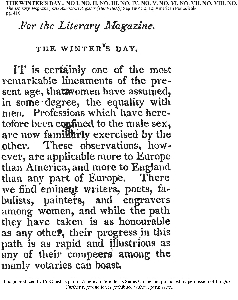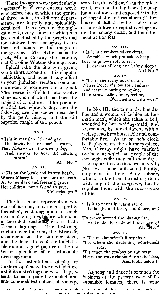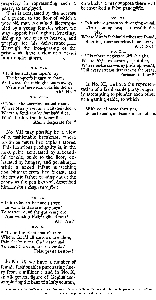 ―416― ―416―
For the Literary Magazine.
the winter's day.
IT is certainly one of the most
remarkable lineaments of the pre-
sent age, that women have assumed,
in some degree, the equality with
men. Professions which have here-
tofore been confined to the male sex,
are now familiarly exercised by the
other. These observations, how-
ever, are applicable more to Europe
than America, and more to England
than any part of Europe. There
we find eminent writers, poets, fa-
bulists, painters, and engravers
among women, and while the path
they have taken is as honourable
as any other, their progress in this
path is as rapid and illustrious as
any of their compeers among the
manly votaries can boast.
 ―417― ―417―
These thoughts were particularly
suggested by a very curious work
now before me, in which the genius
of three ladies, in different depart-
ments, are happily and splendidly
combined. It is a poem of the high-
est merit, every stanza of which has
been embellished by the pencil, and
the picture been consigned to ten
thousand hands by the magic of
the graver. Mrs. Robinson is the
poet, Maria Cosway the painter,
and Caroline Watson the engraver.
I shall take the liberty of giving
you a short account of this singular
publication, and hope it may afford
to your judicious readers some in-
ducement to examine the original.
The verse is divided into twelve
stanzas, each of which has been the
subject of a picture. The poem is
entitled the winter's day, and the
following are the scenes described
by the pen's magic, and the still
superior magic of the pencil.
no i.
| | “Is it in mansion rich and gay, |
| | On downy beds or couches warm, |
| | That Nature owns the wint'ry day, |
| | And shrinks to hear the howling
storm? |
| | Ah! No!” |
no. ii.
| | “'Tis on the bleak and barren heath, |
| | Where Misery feels the shaft of death, |
| | As to the dark and freezing grave |
| | Her children, not a friend to save, |
| | Unheeded go!” |
The first print represents a wo-
man of fashion, in a room superbly
furnished, reclining upon a couch
near a blazing fire, before which, on
a tasselled cushion, lies a little
French lap-dog. The festooned
curtain over the sofa, the Etruscan
ornaments on the chimney-piece,
and the decorations of the toilet-ta-
ble exhibit a good picture of the in-
terior splendour of a fashionable
dressing-room.
To this ostentatious display of
modern opulence, the next picture
exhibits a striking contrast. It pre-
sents to us a poor barefooted and
unaccommodated outcast of society,
seated on the cold earth, in the midst
of a barren heath, far from the busy
haunts of men, and exposed “to the
pelting of the pitiless storm;” her
basket of ballads by her side; one
of her children crept shivering un-
der her scanty cloak, and the other
dead at her feet.
no. iii.
| | “ Is it in chambers silken-drest, |
| | At tables which profusions heap, |
| | Is it on pillows soft to rest, |
| | In dreams of long and balmy sleep?
|
| | Ah! No!” |
no. iv.
| | “ 'Tis in the rushy hut obscure, |
| | Where Poverty's low sons endure: |
| | And scarcely daring to repine, |
| | On a straw pallet, mute, recline, |
| | O'erwhelm'd with woe.” |
In No. III, the fair artist has de-
lineated a woman of fashion at her
matin meal, which she takes in bed,
attended by her waiting-maid, and
surrounded by her children, with a
well spread breakfast table and com-
fortable fire. As an or molu clock
is displayed on the chimney-piece,
Mrs. Cosway might have marked
the hour at which our people of the
ton begin what they call their day.
In opposition to this, we have, in
No. IV, a poor half-naked family,
employed in their daily labour,
which, so far from furnishing them
with any of the comforts, hardly
supplies them with the necessaries
of life.
no. v.
| | “Is it to flaunt in warm attire, |
| | To laugh, and feast, and dance, and
sing, |
| | To crowd around the blazing fire, |
| | And make the, roofs with revels ring? |
| | Ah! No!” |
no. vi.
| | “ 'Tis on the-prison's flinty floor, |
| | 'Tis where the deafening whirlwinds
roar, |
| | 'Tis when the sea-boy on the mast |
| | Hears the wave clamouring at the blast, |
| | And looks below!” |
As song and dance is so much the
business of the present race of fa-
shionable females, there is some
 ―418― ―418―
propriety in representing such a
party, so employed.
This is contrasted by the horrors
of a prison, to the floor of which a
poor old man is chained, accompa-
nied by a young female, whom we
may suppose his daughter, kneeling,
lifting up her eyes to heaven, and
praying for his deliverance..........
Through the iron-grating of the
prison, we have a view of a vessel
in a thunder storm.
no. vii.
| | “Is it beneath the taper's ray |
| | The banquet's luxury to share, |
| | And waste the midnight hours away, |
| | With Fashion's idle votaries there? |
| | Ah! No!” |
no. viii.
| | “ 'Tis in the cheerless naked room, |
| | Where Misery's victims wait their doom, |
| | Where a fond mother famish'd dies, |
| | While forth a frantic father flies |
| |
Man's desperate foe!” |
No. VII may possibly be a view
of a fashionable breakfast, where
profusion pours her copious stores.
This luxurious prodigality is, in the
next print, contrasted by a beauti-
ful female, sunk to the floor, ex-
hausted by hunger, and perishing....
while a naked infant is seeking
nourishment from her breast, and
the frantic father rushing out of the
room, as the pen has well described
him….Man's desperate foe!
no. ix.
| | “Is it to lavish Fortune's store |
| | In vain, fantastic empty joys? |
| | To scatter round the glittering ore, |
| | And “worship Folly's gilded toys? |
| | Ah! No!” |
no. x.
| | “ 'Tis in the silent spot obscure |
| | Where, forc'd all sorrows to endure, |
| | Pale Genius turns, Oh! lesson sad! |
| | To court the vain, and on the bad
|
| | False praise bestow !” |
In No. IX we have a number of
female fashionables purchasing fine-
ry from a milliner; and in No. X,
an allegorical figure of Genius con-
templating the base of a lofty column,
on which we may suppose there will
be inscribed a false panegyric.
no. xi.
| | “ Is it where gamesters thronging round, |
| | Their shining heaps of wealth dis- |
| | play? |
| | Where Vice's fashion'd tribes are found, |
| | Sporting their senseless hours away! |
| | Ah.! No!” |
no. xii.
| | “ 'Tis where neglected Merit sighs, |
| | Where Hope, exhausted, silent dies, |
| | Where virtue starves by pride oppress'd, |
| | 'Till every stream that warms the breast |
| | Forbears to flow!” |
In No. XI, we have the represen-
tation of a fashionable party, eager-
ly attempting to plunder each other
at a gaming-table, to which
| | With equal haste they run, |
| | Some to undo, and some to be undone. |
|